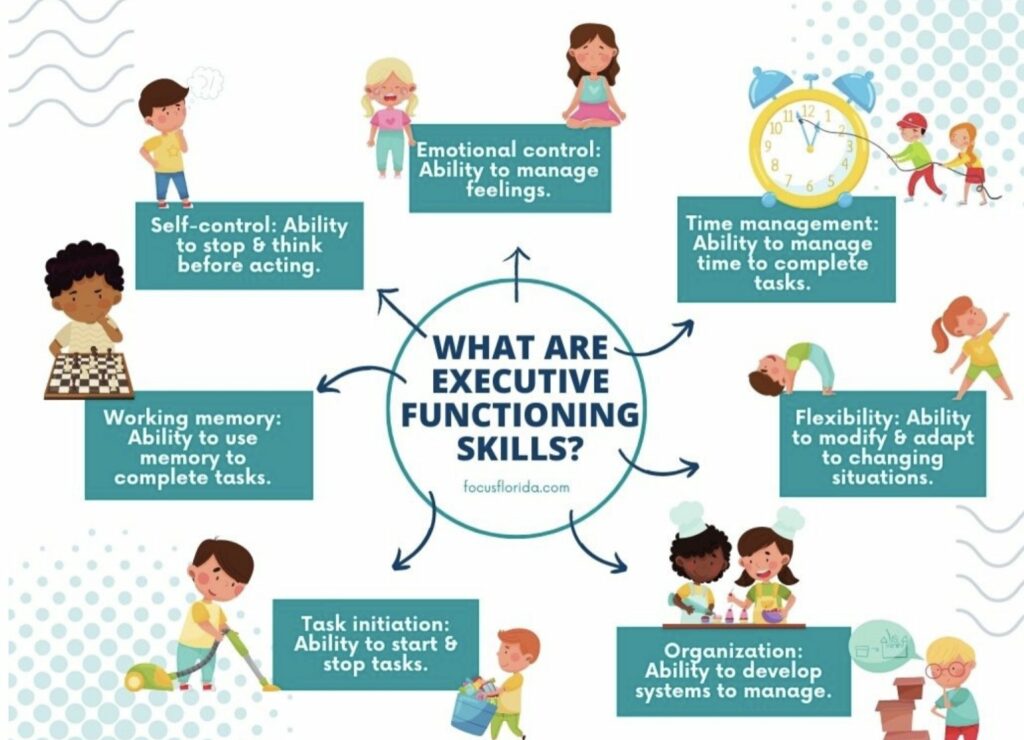What are Executive Function skills?
Executive functioning (EF) includes cognitive flexibility, working memory, and self-control. These are skills that require patience, guidance, and practice, as they do not come naturally.
Unbelievable as it may sound, children practice these abilities when they play. That is, when they are given plenty of time and opportunity to play with peers and problem-solve while they play. During play, especially in mature or complex scenarios such as sociodramatic play, children think through scenarios, devise rules, inhibit impulsive behavior to follow the rules, and extend the time spent playing by using props and more. Thus, complex play has a positive effect on the development of foundational skills. For this type of play, your children need some long playdates with peers, and parents need to keep in mind, especially as children grow, that they are to be coaches only when required. This involves practicing with a child how they can express their needs to a peer. Additionally, as a family, adults and children can enjoy playing old-fashioned games. These also contribute to EF skills.
When More Assistance May Be Needed In Developing These Skills
Self-control is known in the literature of human development as “inhibition” or “inhibitory control.” This means the ability to resist impulses and stop one’s own behavior at the appropriate time. When you see your child interrupting, starting an activity before he or she has the necessary instructions, and not thinking before blurting something inappropriate or acting in an undesirable manner, stop what you are doing and consider it a teaching opportunity. This is what you are doing at that moment (not shopping, visiting, or whatever your context may be). If, despite your best efforts (and your children’s teachers’ assistance in this area), you notice your child struggling with inhibitory control in kindergarten, you may want to consider support through occupational therapy. Unlike what many believe, this type of therapy is not just for adults. It is for anyone who may need help functioning better in various settings they may encounter. It is crucial to advance in this area before the longer hours and higher demands of a first-grade classroom.
Another EF skill is known as “shifting,” which encompasses the ability to make transitions well, tolerate change, problem-solve flexibly, and switch or alternate attention between tasks. Suppose you notice a tendency in your child to become stuck or overly focused on a topic or problem, a marked resistance to change, and difficulties with transitions. Parents often describe such children as rigid or inflexible. These children usually prefer consistent routines, and confronting a change in their routine may elicit emotional distress or repetitive inquiries about what is going to happen next or when an expected but postponed event will occur. Sometimes, these children may exhibit specific repetitive behaviors that they are unable to control. In this case, it is another opportunity to consider the services of occupational therapists. This kind of support, known in early childhood as an “early intervention,” has a higher rate of success when initiated before the elementary years


